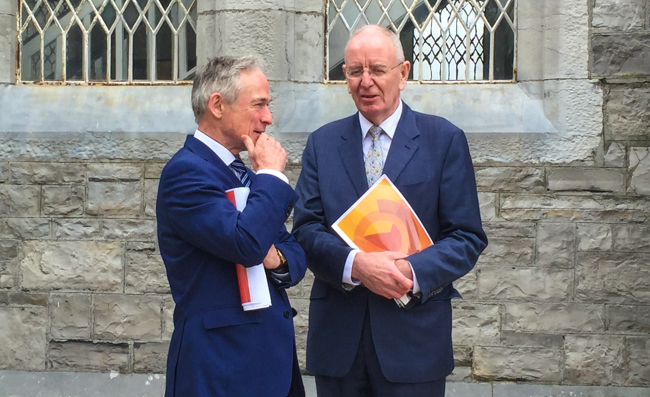The heads of all seven Irish universities will appear before the Oireachtas Education and Skills Committee next month, according to the Irish Times, as the debate on a new funding model for higher education continues.
Another meeting in November will see the Chair of the government’s higher education funding working group, Peter Cassells, address the committee and discuss the report on third-level funding published by the group in July.
In December, students’ unions, including the Union of Students in Ireland (USI) and Trinity College Dublin Students’ Union (TCDSU), will present to the committee, alongside university governing authorities, the employers’ group Ibec and SIPTU.
The November meeting of universities heads, which will also be attended by some of the heads of the institutes of technology, comes after most Irish universities fell in the last Times Higher Education and QS world rankings.
Following the publication of the QS rankings, in which Trinity fell to 98th and University College Dublin (UCD) fell to 176th, the Provost, Patrick Prendergast and the President of UCD, Andrew Deeks, in a joint statement called on the government and political parties to make a decision on higher education funding: “The political system must now make the difficult choices that are needed to improve the funding given to universities and in the manner in which this funding is distributed.”
Prendergast has not outlined a preference for a particular funding model for higher education. However, writing for Independent.ie on the day the Cassells report was published, the Provost stated an income-contingent loan scheme could be a fair system, “once the debt is reasonable”.
The meetings form part of three special sittings of the Education and Skills Committee across November and December, which will be used to discuss the options presented by the government’s higher education funding working group.
In July the report recommended three options for the funding of the sector – the abolition of the student contribution and the creation of a predominantly state-funded system, the continuation of the current student contribution charge coupled with increased state investment, and the introduction of an income-contingent loan system.
The government’s action plan for education, launched in September, set the second quarter of 2017 for when a new funding model for the sector should be decided upon and implemented.
While Fine Gael have not made clear their preferred position on higher education funding, the Minister for Education and Skills, Richard Bruton, has left open the possibility that there might be a compromise possible on the three options put forward by the Cassells report. In an interview with The University Times in September, Bruton, referencing the fact that Fine Gael are a minority government, said that “some form of compromise is always going to have to be there”.
Speaking to The University Times in September, Fianna Fáil’s education spokesperson, Thomas Byrne, would not be drawn on whether his party would agree to a compromised solution to the funding crisis. Speaking at a seminar on higher education funding, hosted by Trinity on Wednesday, Bryne also said that his party had an “open mind” on an income-contingent loan scheme, but were also “cautious” of the option.
Prof Bruce Chapman, from the Australian National University, also spoke at the seminar, and praised the Cassells report for doing the “groundwork” for a solution to higher education funding in Ireland. Chapman was the lead author of the Australian Higher Education Contribution Scheme, which in 1989 introduced an income-contingent loan scheme to the country to fund higher education.
Bruton has faced criticism from a number of trade unions over his handling of the Cassells report. Responding to a question from The University Times at a press conference hosted by the Coalition for Publicly Funded Education last week, Aidan Kenny of the Teachers Union of Ireland (TUI) said: “A compromise is fine, but I think we’ve gone beyond that.”







